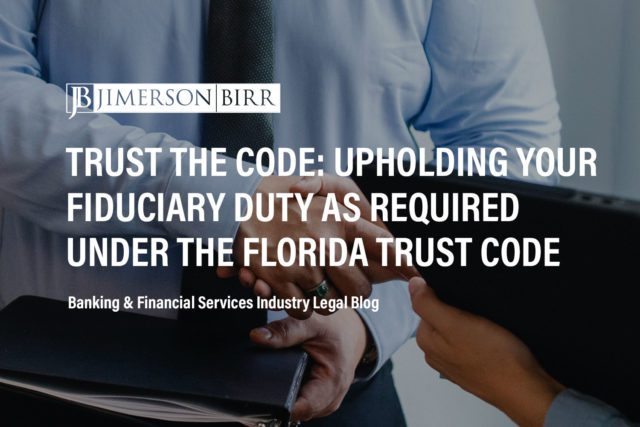What do adversary proceedings to set aside preference payments and fraudulent transfers encompass?
In bankruptcy cases, initiating adversary proceedings to set aside preference payments and fraudulent transfers is an essential tool for trustees and creditors’ committees. By doing so, they can recover assets improperly transferred before the bankruptcy filing. Preference payments are transfers made within 90 days before the bankruptcy filing to a creditor, giving it an advantage over other creditors. Fraudulent conveyances are transfers intended to hinder, delay, or defraud creditors.
For instance, a trustee might initiate an adversary proceeding to set aside a preference payment made by a debtor to a family member shortly before filing for bankruptcy. The trustee would need to prove that the debtor was insolvent at the time of the transfer and that the family member received more than they would have in a Chapter 7 liquidation.
Need a bankruptcy law advocate? Schedule your consultation today with a top bankruptcy and restructuring attorney.
Which Florida laws and regulations apply to adversary proceedings to set aside preference payments and fraudulent transfers?
In Florida, federal and state laws govern the initiation of adversary proceedings to set aside preference payments and fraudulent transfers. The primary federal laws are the Bankruptcy Code provisions under 11 U.S.C. § 547 (preference payments) and 11 U.S.C. § 548 (fraudulent transfers). However, the Bankruptcy Code also allows trustees to rely on state law to avoid transfers4, meaning that Florida law plays a role in these proceedings.
Florida’s Fraudulent Transfer Act provides a framework for determining whether a transfer is fraudulent. Trustees and creditors’ committees can use this act to pursue fraudulent transfers in conjunction with federal law.
In summary, initiating adversary proceedings to set aside preference payments and fraudulent transfers in Florida requires understanding and applying federal and state laws to recover assets effectively for the bankruptcy estate’s benefit.
How do adversary proceedings to set aside preference payments and fraudulent transfers connect to the bankruptcy process?
Adversary proceedings seek to recover assets inappropriately transferred before the bankruptcy filing, ensuring equitable distribution among creditors. Preference payments refer to transfers made within 90 days before the bankruptcy filing that favor one creditor over others, while fraudulent transfers are transfers intending to hinder, delay, or defraud creditors.
Upon bankruptcy filings, the trustee or creditors’ committee must review the debtor’s financial transactions to identify preference payments or fraudulent transfers. If they find these payments or transfers, they may initiate an adversary proceeding within the bankruptcy case to recover those assets for the benefit of the bankruptcy estate. By doing so, trustees and creditors’ committees help maintain fairness in the bankruptcy process and maximize the assets available for distribution among creditors.
When a set of facts is appropriate for bankruptcy services, there are many paths a claimant may take. We are value-based attorneys at Jimerson Birr, which means we look at each action with our clients from the point of view of costs and benefits while reducing liability. Then, based on our client’s objectives, we chart a path to seek appropriate remedies.
To determine whether your unique situation may necessitate litigation or another form of specialized bankruptcy advocacy, please contact our office to set up your initial consultation.
What legal challenges do trustees and creditors’ committees face from debtors when initiating adversary proceedings?
Consider the following issues:
- Proving insolvency: Establishing that the debtor was insolvent at the time of the transfer is essential for proving a preference payment or fraudulent transfer. Debtors may argue they were solvent, making it difficult for trustees to recover the assets.
- Ordinary course of business defense: Debtors may assert that a preference payment was made in the ordinary course of business, making it ineligible for recovery.
- Contemporaneous exchange for new value defense: Debtors may argue that a transfer was a contemporaneous exchange for new value, meaning the creditor provided something of value at the time of the transfer, shielding the transfer from being set aside.
- Establishing intent to defraud: Proving a debtor’s intent to defraud creditors in a fraudulent conveyance case can be challenging, as direct evidence of intent is often scarce, and circumstantial evidence must be relied upon.
- Statute of limitations: Trustees must initiate adversary proceedings to set aside preference payments within two years of the bankruptcy filing. If they fail to do so, debtors may raise the statute of limitations as a defense.
- Exempt property: Debtors may claim that the transferred property is exempt from the bankruptcy estate, making it ineligible for recovery.
Please contact our office to set up your initial consultation to see what forms of legal protection and advocacy may be available for your unique situation.
How should bankruptcy counsel facilitate adversary proceedings to set aside preference payments and fraudulent transfers?
Counsel should consider the following to protect their clients:
- Identify potentially avoidable transfers: Trustees and creditors’ committees must review the debtor’s financial transactions to pinpoint preference payments or fraudulent conveyances that might qualify for recovery.
- Determine insolvency: Establishing the debtor’s insolvency at the transfer time is crucial for preference payments and fraudulent conveyances.
- Timely filing: Trustees must initiate adversary proceedings within two years of the bankruptcy filing to recover preference payments or fraudulent conveyances, ensuring compliance with the statute of limitations.
- Serve the complaint: The trustee or creditors’ committee must properly serve the complaint on the defendant, per the Federal Rules of Bankruptcy Procedure.
Frequently Asked Questions
- How can debtors defend against adversary proceedings to set aside preference payments and fraudulent conveyances?
Debtors can raise various defenses against these proceedings, such as arguing the transfer was made in the ordinary course of business, asserting the contemporaneous exchange for new value defense, or claiming the property is exempt.
- Can a debtor voluntarily return a preference payment or fraudulent conveyance without an adversary proceeding?
Yes, a debtor may voluntarily return the asset, known as a “voluntary turnover,” without needing an adversary proceeding. However, the trustee or creditors’ committee must ensure the return complies with the Bankruptcy Code and relevant procedures.
- Can a trustee or creditors’ committee recover transfers outside the United States?
Recovering assets transferred outside of the U.S. can be more challenging. Still, it is possible if the court has jurisdiction and the transfer meets the criteria for avoidance under the Bankruptcy Code.
Have more questions about how bankruptcy services could positively impact your business operations and relationships?
Crucially, this overview of adversary proceedings to set aside preference payments and fraudulent transfers does not begin to cover all the laws implicated by this issue or the factors that may compel the application of such laws. Every case is unique, and the laws can produce different outcomes depending on the individual circumstances.
Jimerson Birr attorneys guide our clients to help make informed decisions while ensuring their rights are respected and protected. Our lawyers are highly trained and experienced in the nuances of the law, so they can accurately interpret statutes and case law and holistically prepare individuals or companies for their legal endeavors. Through this intense personal investment and advocacy, our lawyers will help resolve the issue’s complicated legal problems efficiently and effectively.
Having a Jimerson Birr attorney on your side means securing a team of seasoned, multi-dimensional, cross-functional legal professionals. Whether it is a transaction, an operational issue, a regulatory challenge, or a contested legal predicament that may require court intervention, we remain tireless advocates at every step. Being a value-added law firm means putting the client at the forefront of everything we do. We use our experience to help our clients navigate even the most complex problems and come out the other side triumphant.
If you want to understand your case, the merits of your claim or defense, potential monetary awards, or the amount of exposure you face, you should speak with a qualified Jimerson Birr lawyer. Our experienced team of attorneys is here to help. Call Jimerson Birr at (904) 389-0050 or use the contact form to schedule a consultation.

We live by our 7 Superior Service Commitments
- Conferring Client-Defined Value
- Efficient and Cost-Effective
- Accessibility
- Delivering an Experience While Delivering Results
- Meaningful and Enduring Partnership
- Exceptional Communication Based Upon Listening
- Accountability to Goals











